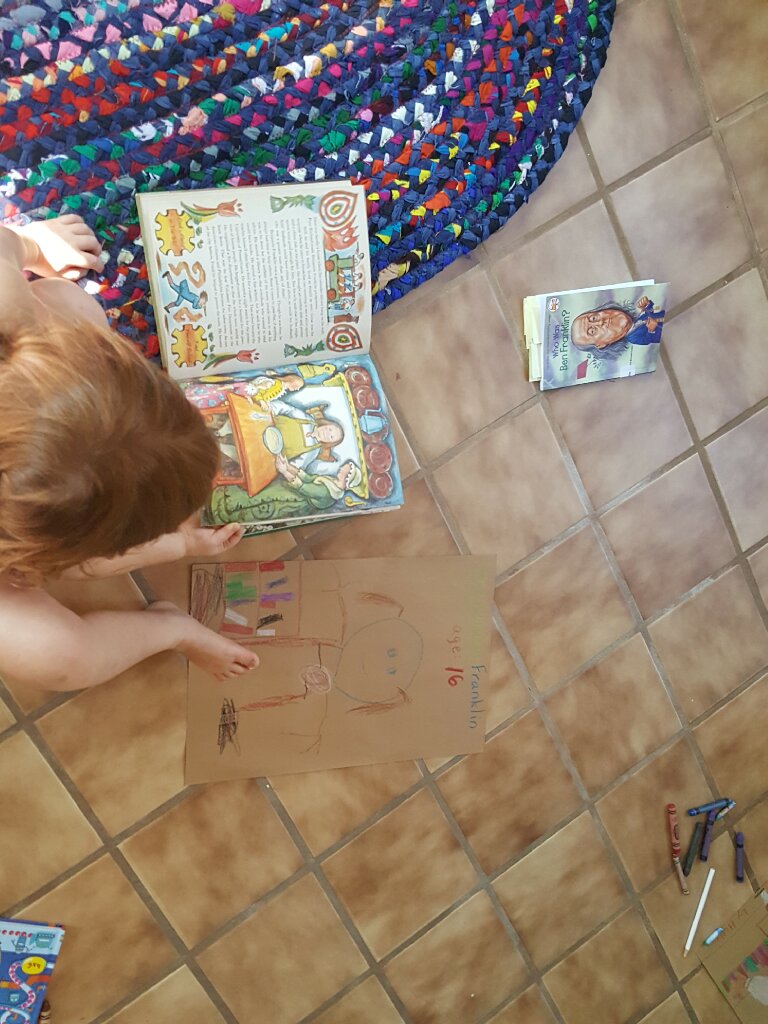Imagination In Place: An Author’s Perspective + A [Very] Short Story

Have you ever felt the need to justify your place? Wendell Berry writes in his 2010 work, Imagination in Place, about his move from New York City, a hub of culture, to his native Kentucky. His move was not necessary, but he wanted to move back. For years, he wrestled with the admonitions of old New York friends who told him he was ruining his life by moving back to rural life. He of course had no reason to give them as to why moving back was a good idea – he could not prove them wrong. Later, he came to understand why he made the decision, after reading North Winter, a collection of poems by Hayden Carruth. Berry’s words give those of us who prize our own “place” – be it a booming metropolis or land of corn fields – a sense of consolation:
Those poems, in addition to the much else they were, clearly did not come from any great center of culture, not from New York or Boston or even Concord. They came from Johnson, Vermont, a place not central to the culture even of Vermont, and yet a place obviously central to the consciousness and imagination of a fine poet. (Berry 57)
Have you ever felt like people who are not from your “place” tend to oversimplify your place, as if it belongs to some sort of province… as if “the South” is the same “South” in every southern state, or town? How does one politely come up against these rampant generalizations? The answer is imagination. I love this Wendell Berry quote:
My neighbors don’t look like Southerners or Kentuckians to me. The better I know them, the more they look like themselves. The better I know my place, the less it looks like other places and the more it looks like itself. It is imagination, and only imagination, that can give standing to these distinctions. (Berry 33).
As an author, writing about a place that is not my own has definitely been a task I do not take lightly. I admit, I lack complete authority over the words I use to attempt to describe the place that is not my own. I admit, my attempts pack less clout than those of an author who originates from the setting of my book. I can attempt to research and gather as much contextual information as possible. At the end of the day, I lean into humility and imagination. Wendell Berry has helped me on this journey as a first-time author.
You see, I have this fear that people will coin me as “fraud”. The voices that come at me say, “How can a homeschool mom be an author of children’s books? What about your family? Isn’t your brain too zapped to tell the stories people want to hear?” No matter what becomes of this, I certainly intend to read and write my entire life until I die. So, thank you Wendell Berry. You broke the mold when you became a farmer who writes. I am a homeschool mom who writes. What will we hear of next – a shepherd boy who became the owner of a worldwide corporation?
The following short story follows a man named Visionary through his early years into his career as a carpenter. The story finds its apex and quickly thereafter its resolution at the point where Visionary makes a life-altering decision.
*Note: This short story is based on the life of Ole Kirk Christiansen, the subject of my new picture book biography I am publishing with Blue Sky Daisies and does NOT include excerpts from my book. References are included.
A Man Called Visionary
by H.G. Lee
There was a man whose vision reached beyond the limits of his day. Visionary Man is what I’ll call him. Visionary Man was born into an agrarian family in a Danish-speaking hamlet of white church and green field, brick cottage and wooden barn.
Raised on the staples of home cooking and hard work, Visionary Man saw the beads of sweat on his parents’ foreheads.
Going by “Visionary” for short, he worked out his hours in school and in the field, keeping his neighbors’ animals safe and fed. The shepherd Visionary had bigger dreams that awaited him.
The beads of sweat accrued from hours in his big brother’s carpentry shop led to a shaping, a forming, of Visionary’s hard work ethic. As wood can be shaped into a masterpiece, the virtues found within Visionary’s heart were being shaped and refined. Perhaps this apprenticeship was the beginning of the long road to excellence. Nobody could have known what his life would be, no more than anyone can look at your life and see what might be or might have been had you chosen a different path.
Six years of apprenticeship took Visionary from young, fourteen-year-old apprentice to twenty-year-old journeyman.
The first cars were being mass-produced. The world had been put on wheels, and it was surely getting smaller, if you know what I mean. As Visionary proudly clutched his journeyman’s certificate, he made plans to study under the master carpenters in the land of fjords, Norway. His adult life was laid out ahead of him. He had his training.
Carpentry work translated into many kinds of jobs. He would go on to build churches, farm buildings, cabinets, doors and windows. If this was all there was to his story, his life would have been considered very normal, perhaps. It may not seem like he would go on to create a worldwide corporation whose name still elicits elated squeals from children and admiration from parents.
But Visionary’s story did not end there.
Remember, his name was Visionary. He lived through the dawn of the twentieth century, where the airplane was the newest technology, and the Internet was introduced at dusk, long after his death. Why did this Visionary at midlife look at his company and decide to start focusing more on toys for children than anything else?

How did this man possess the resolve to make life better for children? Was it his heart for others that led him to his own innovation?
Some people laughed at him. His fellow townspeople knew him as Visionary, and many loved him. But Visionary’s ideas took monetary risk. He was a lovable man, but not always a safe man. His ideas made him unsafe.
Maybe you’d think this man was destined for the metropolis.
He could have moved to Copenhagen, rife with ready customers after his factory burned to the ground. He had offers to relocate. Visionary’s loyalty got in the way. He wanted to preserve the jobs of his friends, his workers, his “people” as he called them. His loyalty and vision kept him in his town.
You see, Visionary had been given a vision. He spoke of it later as having come from God. His vision included a modern factory with assembly lines and machinery in his own town (not in a metropolis). He loved his place. He loved his work. He loved the people who worked for him, refusing to call them workers, but instead, “people”. Visionary was a special person. What would have been different had he decided to continue building household products, furniture, and churches? A lot would have been impacted, no doubt. Would Visionary still have had an impact in his place?
Sometimes, it’s not what we produce that impacts people the most. It’s who we are.
References
Andersen, J. (2021, September 17). Kjeld Kirk Kristiansen about his grandfather: “he could gather 70-80 employees at the factory for devotion every day”. Kristeligt Dagblad. https://www.kristeligt-dagblad.dk/kultur/kjeld-kirk-kristiansen-om-sin-farfar-han-kunne-samle-70-80-medarbejdere-til-morgenandagt-paa
Anthony, W. (2018). The LEGO story. Scandinavian Review, Spring 2018, pages 17-33. https://www.amscan.org/wp-content/uploads/2020/03/Pages-from-SR-Spring-2018.pdf
Christiansen, P.N.G. (2021, November 29). Out on an adventure. Ud & Se. https://www.udogse.dk/ud-paa-eventyr/
The LEGO Group. (2020). The lego group history [Infographic].
Lego.com US. https://www.lego.com/en-us/aboutus/lego-group/the-lego-group-history/
GuideDanmark. (2022). Visit Billund. https://www.visit-billund.com/billund/service-information/filskov-gdk729232






